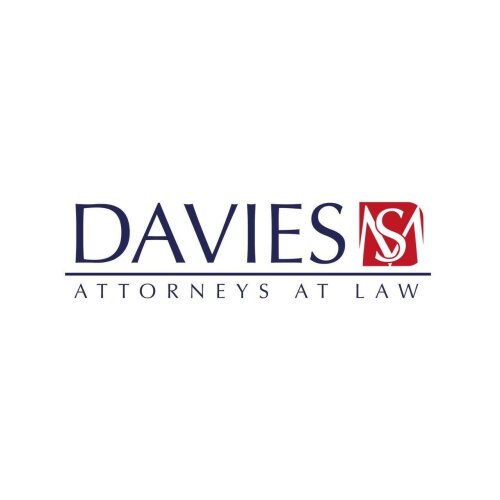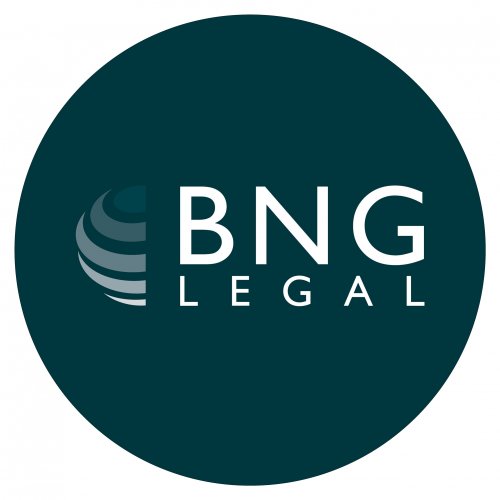Best Financial Services Regulation Lawyers in Cambodia
Share your needs with us, get contacted by law firms.
Free. Takes 2 min.
Or refine your search by selecting a city:
List of the best lawyers in Cambodia
About Financial Services Regulation Law in Cambodia
Financial Services Regulation in Cambodia is a developing area of law that encompasses the rules and guidelines governing financial institutions and providers of financial services within the country. This includes banks, insurance companies, microfinance institutions, securities firms, and other businesses engaged in various financial activities. The regulatory environment is designed to ensure financial stability, protect consumers, and support economic growth. In Cambodia, the National Bank of Cambodia (NBC) and the Securities and Exchange Commission of Cambodia (SECC) play pivotal roles in overseeing financial regulations.
Why You May Need a Lawyer
There are multiple circumstances under which you might need legal assistance in the field of Financial Services Regulation in Cambodia. These include:
- Establishing a new financial services business and needing to comply with licensing requirements.
- Facing disputes regarding financial transactions or contracts.
- Dealing with regulatory compliance issues and ensuring adherence to local laws and guidelines.
- Navigating complex transactions involving cross-border financial services.
- Resolving any allegations of non-compliance with regulatory requirements.
- Understanding evolving financial laws that may impact your business operations.
Local Laws Overview
The regulatory framework for financial services in Cambodia is primarily shaped by a set of laws and regulations issued by the National Bank of Cambodia and the Securities and Exchange Commission of Cambodia. Key aspects include:
- Banking Law: Governs the establishment, operation, and supervision of banks and financial institutions.
- Microfinance Law: Sets rules for the operation of microfinance institutions focusing on lending and borrowing practices.
- Securities Law: Covers aspects related to the issuance and trading of securities, focusing on market stability and investor protection.
- Consumer Protection: Regulations aimed at protecting consumers of financial services and ensuring fair practices in the industry.
- Anti-Money Laundering: Rules directed at preventing and combating money laundering and financing terrorism activities.
Frequently Asked Questions
What regulatory bodies oversee financial services in Cambodia?
The National Bank of Cambodia and the Securities and Exchange Commission of Cambodia are the primary regulatory authorities for financial services.
Is a license required to provide financial services in Cambodia?
Yes, most financial service providers, including banks and microfinance institutions, need to obtain a license from the relevant authorities before operating.
How can I ensure compliance with financial regulations?
Staying abreast of regulatory updates, consulting legal experts, and implementing robust compliance programs can help ensure adherence to financial regulations.
What are some common regulatory challenges faced by financial service providers?
Challenges can include meeting licensing requirements, ensuring ongoing compliance, adapting to regulatory changes, and managing risks effectively.
Are there penalties for non-compliance with financial regulations?
Yes, entities that fail to comply with regulations may face penalties, fines, or operational restrictions imposed by regulatory authorities.
What rights do consumers have under financial services law?
Consumers are entitled to fair treatment, access to information, and protection against unfair practices as per consumer protection regulations.
Can disputes with financial institutions be legally pursued?
Yes, disputes can be pursued through legal channels, including mediation, arbitration, or litigation, depending on the issue and agreement between parties.
How does the government support the financial sector's growth?
The Cambodian government supports growth through regulatory reforms, initiatives to boost investor confidence, and measures to encourage financial inclusion.
What impact does technology have on financial services law?
Technology, including fintech solutions, is driving regulatory changes, necessitating updates in laws to address digital banking, online transactions, and cybersecurity.
Can foreigners invest in the Cambodian financial services sector?
Yes, foreigners can invest, but they must navigate specific legal and regulatory requirements, often necessitating legal consultation to ensure compliance.
Additional Resources
For those seeking further information on Financial Services Regulation in Cambodia, consider consulting the following resources:
- National Bank of Cambodia (NBC): Offers details on banking regulations and licensing requirements.
- Securities and Exchange Commission of Cambodia (SECC): Provides guidance on securities laws and investor protection measures.
- Ministry of Economy and Finance: Oversees broader financial policy initiatives and economic regulations in Cambodia.
- Law Firms Specializing in Financial Services: Local law firms can offer tailored legal advice and representation.
- Financial Industry Associations: Groups that represent financial institutions can be a source of industry insights and advocacy information.
Next Steps
If you require legal assistance in Financial Services Regulation in Cambodia, consider the following steps:
- Identify and define the specific legal issues or inquiries you have related to financial services regulation.
- Consult with a legal expert or financial services lawyer who specializes in Cambodian regulations.
- Gather all relevant documentation and information that may support your case or inquiry.
- Engage with local industry associations or regulatory bodies for preliminary advice or guidance.
- Develop a clear roadmap with your legal counsel on how to address the regulatory challenges or pursue any necessary proceedings.
Lawzana helps you find the best lawyers and law firms in Cambodia through a curated and pre-screened list of qualified legal professionals. Our platform offers rankings and detailed profiles of attorneys and law firms, allowing you to compare based on practice areas, including Financial Services Regulation, experience, and client feedback.
Each profile includes a description of the firm's areas of practice, client reviews, team members and partners, year of establishment, spoken languages, office locations, contact information, social media presence, and any published articles or resources. Most firms on our platform speak English and are experienced in both local and international legal matters.
Get a quote from top-rated law firms in Cambodia — quickly, securely, and without unnecessary hassle.
Disclaimer:
The information provided on this page is for general informational purposes only and does not constitute legal advice. While we strive to ensure the accuracy and relevance of the content, legal information may change over time, and interpretations of the law can vary. You should always consult with a qualified legal professional for advice specific to your situation.
We disclaim all liability for actions taken or not taken based on the content of this page. If you believe any information is incorrect or outdated, please contact us, and we will review and update it where appropriate.
Browse financial services regulation law firms by city in Cambodia
Refine your search by selecting a city.















